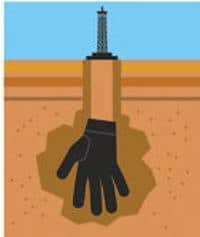At 9:35 p.m. on Saturday, May 30, Greeley, Colorado was struck by a 3.4 magnitude earthquake. Earthquakes are highly unusual in eastern Colorado, raising speculation that it was a “frackquake” — a man-made earthquake stimulated by the disposal of contaminated drilling water in deep injection wells. This disposal technique forces wastewater generated from hydraulic fracturing (fracking) deep into underground rock formations, lubricating layers of rock that would not ordinarily be subject to movement.
Earthquakes are so rare in eastern Colorado that the U.S. Geological Survey (USGS) has labeled the area “aseismic.” The Greeley Tribune reported that the May 30 quake’s epicenter was roughly two miles away from two deep oil and gas wastewater injection sites that have not been inspected for two years.
Scientists placed seismometers around the area to try to gather more detailed information on what may have generated the quake and its aftershocks. Colorado currently has very few seismometers in place because earthquakes are so rare in the state.
Other Man-Made Quakes
Drilling and deep well disposal of contaminated wastewater has created man-made earthquakes in Colorado before.
The strongest earthquake in Colorado history, a 5.3 magnitude temblor that struck on August 9, 1967, was linked to a 12,000 foot deep wastewater disposal well at the Rocky Mountain Arsenal, a chemical weapons manufacturing plant that the U.S. Army operated until 1992. The earthquake occurred after the Army decommissioned the well and started pumping the wastewater out of it.
The first earthquakes observed in the Denver area throughout the 1900s occurred in the month after the Army drilled its injection well, and after that time, more than 700 earthquakes were recorded, the majority with epicenters near the Army’s drilling site.
In April 2014, Rick Simmers, chief of Ohio’s Department of Natural Resources, definitively linked drilling activity to the occurrence of earthquakes in that state. The agency imposed a moratorium on drilling in the area of the earthquakes, started requiring wells to have seismic monitors on them and imposed strict regulations on disposal wells.
If the May 30 quake is definitively linked to drilling activity in Weld County, more drilling regulations could be on the way for Colorado as well.
Subscribe to our newsletter
Stay up to date with DeSmog news and alerts






